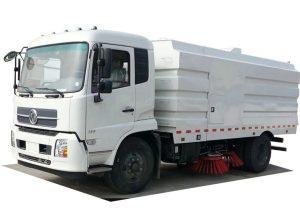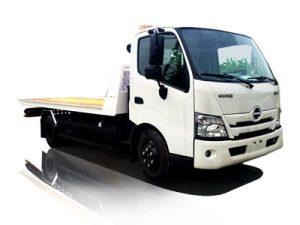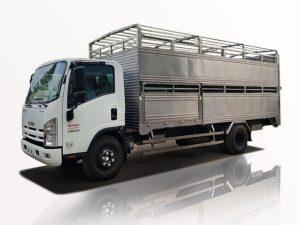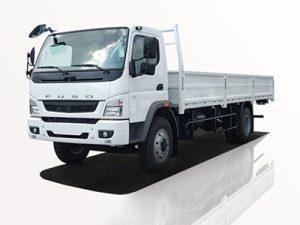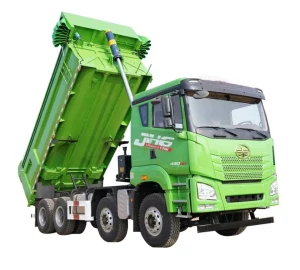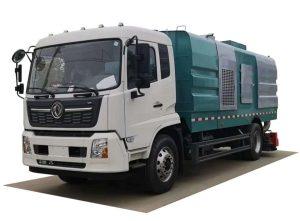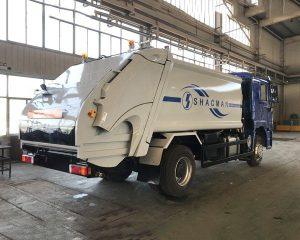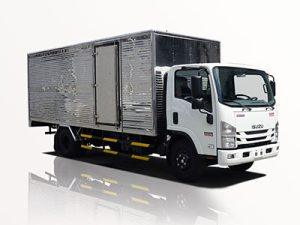Monday to Saturday - 8:00 -17:30
Everything You Need to Know About Peterbilt Trash Trucks
Introduction
When it comes to waste management and collection, the type of vehicle used plays a crucial role in determining efficiency, safety, and overall performance. Among the various options available, the Peterbilt trash truck stands out for its reliability, durability, and technological advancements. In this article, we’ll delve deep into the features, benefits, and considerations surrounding Peterbilt trash trucks, providing you with a comprehensive overview to help you make informed decisions.
What is a Peterbilt Trash Truck?
Peterbilt is a renowned manufacturer of high-quality commercial vehicles, including trucks specifically designed for waste management. These trash trucks are engineered to handle the rigors of daily trash collection while maximizing payload capacity and minimizing downtime. With advanced technology, ergonomic designs, and robust engines, Peterbilt trash trucks are pivotal for sanitation companies nationwide.
Types of Peterbilt Trash Trucks
Peterbilt offers a variety of models specifically for waste collection. The most popular types include:
- Rear Loader: Ideal for urban environments, rear loader models allow workers to collect waste from the back, maximizing efficiency.
- Front Loader: Designed for commercial and industrial applications, front loaders can lift large bins quickly and efficiently.
- Side Loader: Perfect for residential routes, side loaders enable curbside collection without the need for the driver to exit the vehicle.
Key Features of Peterbilt Trash Trucks
Several essential features set Peterbilt trash trucks apart from other manufacturers in the market:
1. Power and Performance
Peterbilt trucks are available with various horsepower options, ranging from 200 HP to over 600 HP, catering to different load requirements. Equipped with powerful engines, these trucks offer excellent torque, ensuring they can handle significant payloads with ease.
2. Innovative Design
With a focus on both functionality and comfort, Peterbilt’s trash trucks feature ergonomic designs. The cab is spacious, providing ample visibility and ease of access for both drivers and waste workers. This design promotes safety and efficiency during operations.
3. Advanced Technology
Peterbilt incorporates cutting-edge technology in their trash trucks, including:
- Telematics: Vital for fleet management, telematics systems help monitor vehicle health, track routes, and optimize fuel efficiency.
- Camera Systems: Enhances safety by providing drivers with visibility around the truck, reducing accidents.
- Smart Controls: Simplifies operations with intuitive controls designed for ease of use.
4. Fuel Efficiency
Fuel efficiency is critical in waste collection due to the volume of operations. Peterbilt trash trucks employ aerodynamic designs and innovative engine technologies to maximize fuel economy, helping operators reduce overall operational costs.
Benefits of Using Peterbilt Trash Trucks
Choosing a Peterbilt trash truck brings several benefits, including:
Durability and Longevity
Built to withstand tough conditions, Peterbilt trucks are made from high-strength materials that enhance durability. This longevity leads to fewer repairs and replacements over time, ultimately saving money.
Safety Features
Safety is paramount in waste collection. Customizable features such as automatic brakes, stability control, and safety bolts ensure both operators and pedestrians remain safe during operations.
Customer Support and Service
Peterbilt offers comprehensive customer service, including maintenance and parts availability through authorized dealerships. This support ensures that your truck operates at peak performance throughout its lifecycle.
Considerations When Purchasing a Peterbilt Trash Truck
While Peterbilt trash trucks offer numerous benefits, there are essential considerations to keep in mind when purchasing:
1. Cost
The purchase price of Peterbilt trash trucks can be higher compared to other brands. However, the investment can pay off through fuel savings and reduced maintenance costs.
2. Customization
Consider your specific waste collection needs. Peterbilt trucks can be highly customized, allowing you to choose features that align with your operational requirements—be it size, engine type, or additional technological features.
3. Route Analysis
Understanding the routes your drivers will be taking is key. For example, heavy urban traffic may require a more compact model, while suburban routes may benefit from larger capacity options.
Maintenance Tips for Peterbilt Trash Trucks
Regular maintenance is vital for ensuring the longevity and performance of your trash truck. Here are practical maintenance tips:
1. Schedule Regular Inspections
Establish a routine inspection schedule, checking fluid levels, tire pressure, and brake systems to prevent unforeseen issues.
2. Keep It Clean
Regular washing helps prevent rust and build-up of waste. A clean truck promotes safety and extends the life of the vehicle.
3. Monitor Engine Performance
Pay attention to any changes in engine performance, such as unusual noises or decreased power. Addressing these issues early can prevent larger, costly repairs.
Popular Peterbilt Trash Truck Models
Several models cater to different waste management needs. Below are some popular selections:
| Model | Key Features | Best For |
|---|---|---|
| Model 567 | Ergonomic design, spacious cab | Urban environments |
| Model 579 | Aerodynamic enhanced fuel efficiency |
Long-haul waste transport |
| Model 520 | Heavy-duty construction | Commercial and industrial applications |
Future of Waste Management with Peterbilt
As waste management continues to evolve, Peterbilt is at the forefront of innovation. The company is increasingly focusing on:
1. Electrification
With sustainability being a key focus, Peterbilt is exploring electric trash trucks that will reduce emissions and operational costs.
2. Automated Technology
Automation in waste collection could revolutionize the industry, leading to more efficient routes and reduced labor costs. Peterbilt is investing in research to incorporate automation into their trucks.
Frequently Asked Questions (FAQ)
1. How much does a Peterbilt trash truck typically cost?
The cost can vary significantly based on the model and custom features but generally ranges between $100,000 to $200,000.
2. What kind of maintenance do Peterbilt trash trucks require?
Regular maintenance includes fluid checks, brake inspections, tire rotations, and cleaning to ensure efficient operation.
3. Are there financing options available for purchasing a Peterbilt trash truck?
Yes, various financing options are available, including leasing and loans through Peterbilt dealerships and third-party lenders.
4. How can I customize my Peterbilt trash truck?
Customization options range from engine type and cab size to additional technology features. Consult your Peterbilt dealer for specific options.
5. What warranty options does Peterbilt offer for their trash trucks?
Peterbilt typically offers extensive warranties that cover parts and service, though terms can vary by model. It’s best to check with the dealership for specifics.
6. Are Peterbilt trash trucks eco-friendly?
Peterbilt is committed to sustainability, focusing on fuel-efficient technologies and exploring electric models to reduce environmental impact.


